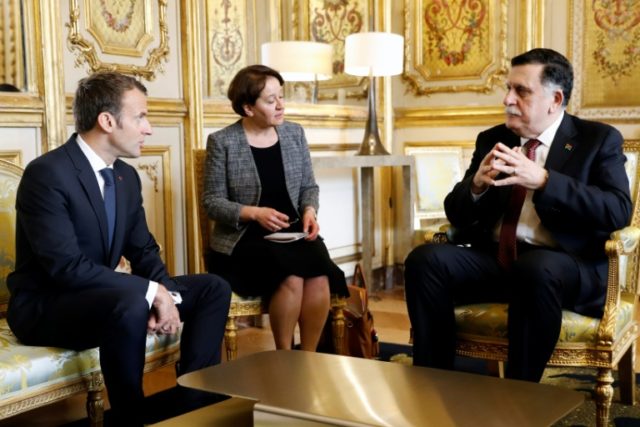Representatives of the warring factions that control portions of chaotic Libya tentatively agreed to hold national elections on December 10 during a conference in Paris on Tuesday. They also resolved to make progress toward drafting a constitution by September.
An adviser to Prime Minister Fayez Sarraj, whose government controls most of western Libya, announced the news. General Khalifa Haftar, who controls the east, also sent representatives to the Paris meeting.
The office of French President Emmanuel Macron declared that Libyan factional leaders “agreed in principle to a non-binding accord,” which is about as tentative as an agreement could be.
There are plenty of other factions in the bloody ruin of post-Obama Libya, and some of them are not on board with the December election plan, as Reuters reports:
A group of 13 military councils and brigades in western Libya issued a statement saying that the Paris initiative did not represent them. “We call for real dialogue focused on the aspirations of Libyan society in its aspects,” the statement said.
It also declared its opposition to “foreign interference” and to “any initiative aimed at normalizing military rule”.
Over the weekend, Tripoli armed groups displaced the Presidential Guard – a force formed by Seraj’s Government of National Accord with international backing – from strategic positions at the capital’s shuttered international airport and the prime minister’s office. Diplomatic sources linked the move at least in part to unease over the Paris meeting.
Furthermore, Haftar’s Libyan National Army is currently laying siege to a city claimed by the major western faction, the State Council headquartered in Tripoli, so there are good reasons to fear the non-binding accord between them could fall apart long before December.
The United Nations is also unhappy that the fragile “consensus” reached in Paris disregarded an action plan for national elections hammered out under U.N. auspices last year, sowing further confusion in a nation that is already saturated with violent chaos. (Readers who recall the much-touted 2015 establishment of a “Government of National Accord” with United Nations backing will be dismayed to learn that the GNA has pretty much collapsed into Sarraj’s faction, and it controls only about half as much territory as Haftar’s military junta.)
U.N. envoy Ghassan Salame set those objections aside on Tuesday to praise the “historic meeting” in Paris, declaring that he has “never seen such convergence between the Libyan popular will and the international will.”
“We do not speak in place of the Libyans. It’s the Libyans who agree all together in our presence. This is crucial,” Salame said, pointedly ignoring the Libyan factions who have already stated the Paris conference does not speak for them.
The UK Guardian cites a number of reasons for believing the goals of the Paris conference are unrealistic, including Haftar’s enduring dream of being the only strongman who can unify Libya under his rule; the ongoing threat of terrorist attacks on elections; and the fact that none of the factional representatives sent to France actually signed anything.
On the subject of terrorism, the Islamic State is still a presence in Libya, although much less powerful than it was at its peak four years ago. A rash of terrorist attacks in 2018 announced the smaller, leaner, but more flexible Libyan ISIS. Militia leaders say ISIS fighters are moving into Tripoli, where they would probably prioritize disrupting national elections, because they want to use divided Libya as a safe haven and base of operations for future international terrorist attacks.

COMMENTS
Please let us know if you're having issues with commenting.